
Supercars of the 80s – Ferrari Testarossa
Step back into the 80s with the iconic Ferrari Testarossa, the symbol of style and speed that defined a decade
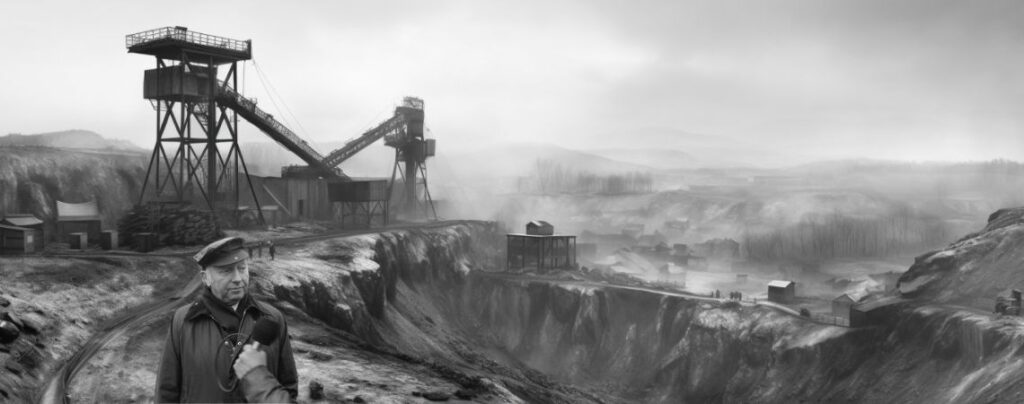
1st: Brunei regains its independence from the United Kingdom. It became a British protectorate in 1888.
3rd: The FTSE 100 Index starts.
6th: The Society of Motor Manufacturers and Traders announces that a record of nearly 1.8million cars were sold in Britain last year. The best selling car was the Ford Escort with more than 174,000 sales.
9th: Sarah Tisdall, a 23-year-old Foreign Office clerk, is charged under the Official Secrets Act.
13th: Six people die when Britain is battered by hurricane-force winds.
14th: Six people die during a fire at the Maysfield Leisure Centre in West Belfast.
15th: Left-wing MP Tony Benn wins the Labour Party’s nomination for the Chesterfield by-election, eight months after losing his seat as Member of Parliament (MP) for Bristol in the General Election.
Embed from Getty Images25th: the government prohibits GCHQ staff from belonging to any trade union.
1st: Japanese car maker Nissan signs an agreement with the British government to build a car factory in Britain. This landmark deal means that “foreign” cars will be built in Britain for the first time, with the factory set to open during 1986.
Chancellor of the Exchequer Nigel Lawson announces that after 13 years, the halfpenny will be demonetised and withdrawn from circulation.
7th: Great Britain and Northern Ireland compete at the Winter Olympics in Sarajevo, Yugoslavia, and win one gold medal.
12th: Austin Rover announces that the Triumph marque will be discontinued this summer after 63 years, as the Triumph Acclaim’s successor will be sold as a Rover.
14th: Torvill and Dean win a gold medal for ice skating at the Winter Olympics.
1st: Labour MP Tony Benn is returned to parliament after winning the Chesterfield by-election, having lost his previous seat at the general election last year.
2nd: Five months after becoming Labour Party leader, Neil Kinnock’s ambition of becoming Prime Minister at the next election (due to be held by June 1988) are given a boost when Labour come top of a MORI poll with 41% of the vote.
12th: Miners’ strike begins and pits the National Union of Mineworkers against Margaret Thatcher’s Conservative government intent on free market reform of the nationalised industries, which includes plans for the closure of most of Britain’s remaining coal pits.
Embed from Getty Images14th: Sinn Féin’s Gerry Adams and three others are seriously injured in a gun attack by the Ulster Volunteer Force (UVF).
21st: European Economic Community summit breaks down over disagreement over Britain’s budget rebate with Margaret Thatcher threatening to veto any expansion of spending plans.
23rd: Hilda Murrell, 78-year-old rose grower and anti-nuclear campaigner, is found dead near her home in Shropshire, five days after being reported missing. West Mercia Police launch a murder investigation.
27th: Starlight Express opens at Apollo Victoria Theatre in London.
28th: A greenfield site at Washington, near Sunderland, is confirmed as the location for the new Nissan car factory.
2nd: Youth gangs run riot in Wolverhampton, looting from shops.
4th: Peace protesters evicted from the Greenham Common Women’s Peace Camp.
9th: More than 100 pickets are arrested in violent clashes at the Creswell colliery in Derbyshire and the Babbington colliery in Nottinghamshire. It is estimated that 46 out of 176 British coal mines are currently active as miners fight government plans to close 20 coal mines across Britain.
12th: Arthur Scargill, the leader of the National Union of Mineworkers, rules out a national ballot of miners on whether to continue their strike, which has already lasted five weeks.
15th: The comedian Tommy Cooper, 63, collapses and dies on stage from a heart attack during a live televised show, Live from Her Majesty’s.
17th: WPC Yvonne Fletcher is shot and killed by a secluded gunman during a siege outside the Libyan Embassy in London in the event known as the 1984 Libyan Embassy Siege. 11 other people are also shot but survive.
22nd: In the wake of Yvonne Fletcher’s death, Britain severs diplomatic relations with Libya and serves warning on its seven remaining Libyan diplomats to return to their homeland.
27th: 30 Libyan diplomats leave Britain.
2nd: The Liverpool International Garden Festival opens.
8th: The Thames Barrier, designed to protect London from floods, is opened by The Queen.
19th: Everton win the FA Cup, their first major trophy for 14 years, with a 2-0 win over Watford in the final at Wembley Stadium. The goals are scored by Andy Gray and Graham Sharp. Everton’s last FA Cup triumph came in 1966, and they have now won the trophy four times.
26th: the football British Home Championship, which has been contested by the four home nations since 1884, witnesses its last game. Northern Ireland win the trophy.
29th: fighting at Orgreave colliery between police and striking miners leaves 64 injured.
30th: The Queen officially opens a new terminal at Birmingham International Airport. The terminal has been in use since the start of last month, replacing the original terminal that opened in 1939.
Liverpool win the European Cup for the fourth time with a penalty shoot-out victory over AS Roma of Italy after a 1–1 draw in the final at Olympic Stadium in Rome.
Arthur Scargill is arrested and charged with obstruction at Orgreave.
7th: 120 people are arrested when fighting breaks out outside the Houses of Parliament during a mass lobby by striking miners.
14th: the European Parliament Election is held. The Tories lead the way with 45 MEPs, with Labour in second place with 32. The SDP–Liberal Alliance gains 18.5% of the vote but fails to elect a single MEP.
15th: A miner picketing a Yorkshire power station is killed by a lorry.
18th: Battle of Orgreave confrontation between picketing miners and police.
Embed from Getty Images19th: Austin Rover launches the Rover 200 Series saloon, the replacement for the Triumph Acclaim, which means the end of the Triumph brand after 61 years. Like its predecessor, the new car is the result of a venture with Honda.
20th: The biggest exam shake-up in the education system in over 10 years is announced with O-level and CSE exams to be replaced by a new exam, the GCSE. The first GCSE courses will begin in September 1986 and will be completed in the summer of 1988.
22nd: The inaugural flight of the first Virgin Atlantic plane takes place.
29th: Control of London Transport is removed from the Greater London Council and transferred to London Regional Transport (reporting to the Secretary of State for Transport) under terms of the London Regional Transport Act.
4th: The government announces the abolition of dog licences.
6th: David Jenkins consecrated as Bishop of Durham, despite strong objections from conservative Christians.
Murder of Isabel Schwarz, a psychiatric social worker, in South London.
7th: the 10th G7 summit held in London.
9th: A fire in the roof of York Minster, probably caused by an electrical storm, causes extensive damage which is expected to cost millions of pounds to repair.
Embed from Getty Images12th: Robert Maxwell buys the Daily Mirror for £113.4 million.
18th: the general-interest magazine Tit-Bits closes after 104 years.
19th: A magnitude 5.4 earthquake with an epicentre in the Llŷn Peninsula of North Wales is felt throughout the United Kingdom.
Neil Kinnock’s hopes of becoming Prime Minister are given a boost by the latest MORI poll which puts Labour three points ahead of the Conservatives on 40%,
26th: Trade Union Act prohibits unions from striking without a ballot.
28th: Great Britain and Northern Ireland compete at the Olympics in Los Angeles, California, and win 5 gold, 11 silver and 21 bronze medals.
2nd: a Surrey business man wins a case in the European Court of Human Rights over illegal phone tapping by the police.
11th: Barefoot South African runner Zola Budd, controversially granted British citizenship earlier in the year, collides with Mary Decker in the 3000 meters final at the Olympics, neither finishing as medallists.
16th: John DeLorean, the man behind the collapsed DeLorean carmaker, is cleared on drug trafficking charges in Los Angeles.
24th: Vauxhall unveils the Mk2 Astra.
4th: The Thomas the Tank Engine and Friends television series is first broadcast on ITV.
6th: A MORI poll shows that the Conservatives now have a slim lead over Labour for the first time this year.
7th: An outbreak of food poisoning in two Yorkshire hospitals has so far claimed 22 lives in the space of two weeks.
10th: Geneticist Alec Jeffreys discovers DNA fingerprinting.
15th: The Princess of Wales gives birth to her second son.
Embed from Getty Images16th: The one-day-old son of The Prince and Princess of Wales is named as Henry Charles Albert David.
24th: Four pupils and their teacher die and a further six pupils are injured when a roll of steel from a lorry crushes their minibus near Stuart Bathurst RC High School in Wednesbury, West Midlands.
26th: The United Kingdom and the People’s Republic of China sign the initial agreement to return Hong Kong to China in 1997.
28th: The High Court rules that the miner’s strike is unlawful.
1st: David Jenkins, Bishop of Durham, launches an attack on Margaret Thatcher’s social policies. The Durham area has been particularly hard hit by factory and mine closures since her election as Prime Minister five years ago.
3rd: Plans to expand the Urban Enterprise Zone in Dudley, West Midlands, are approved;
5th: Police in Essex make the largest cannabis seizure in British criminal history when a multimillion-pound stash of the drug is found on a schooner moored on the River Crouch near North Fambridge village.
10th: the High Court fines the NUM £200,000 and Arthur Scargill £1,000 for contempt of court.
12th: the Provisional Irish Republican Army attempts to assassinate the Conservative cabinet in the Brighton hotel bombing. Margaret Thatcher escapes unharmed, but MP Anthony Berry and four other people are killed, whilst Norman Tebbit is trapped among the rubble and his wife Margaret is seriously injured.
13th: Darts player John Lowe achieves the first televised nine dart finish.
16th: The Bill, a police TV drama, airs for the first time on ITV. It debuted last year as a pilot show Wooden Top.
18th: Support for the Conservative government is reported to be improving after several months of dismal poll showings, with the latest MORI poll putting them nine points ahead of Labour on 44%.
23rd: BBC News newsreader Michael Buerk gives powerful commentary of the famine in Ethiopia which has already claimed thousands of lives and reportedly has the potential claim the lives of many as 7 million more people. Numerous British charities including Oxfam and Save the Children begin collection work to aid the famine victims, who are mostly encamped near the town of Korem.
5th: 800 miners end their strike and return to work.
15th: the General Synod of the Church of England support the ordination of women as deacons, but not as full priests.
19th: the number of working miners increases to around 62,000 when nearly 3,000 striking miners return to work.
20th: British Telecom shares go on sale in the biggest share issue ever. Two million people (5% of the adult population) buy shares, almost doubling the number of share owners in Britain.
23rd: the Oxford Circus fire traps around 1,000 passengers on the London Underground but no-one is killed.
25th: 36 of Britain and Ireland’s top pop musicians gather in a Notting Hill studio to form Band Aid and record the song “Do They Know It’s Christmas” in order to raise money for famine relief in Ethiopia.
28th: the British Telecom share offer closes.
30th: Tension in the miners’ strike increases when two South Wales miners are charged with the murder of taxi driver David Wilkie, 35, who died when a concrete block was dropped on his car from a road bridge. The passenger in his car, who escaped with minor injuries, was a miner who had defied the strike and continued going to work.
The British and French governments announce their intention to seek private promoters for the construction of the Channel Tunnel in order to build and operate it without public funding. The tunnel, for which proposals were first made as long ago as 1802, is expected to be open in the early 1990s.
3rd: British Telecom is privatised.
The Band Aid charity single is released.
10th: Richard Stone wins the Nobel Prize in Economics
11th: Band Aid’s “Do They Know It’s Christmas?” goes to the top of the UK Singles Chart.
12th: Bucks Fizz, the highly successful pop group, are involved in a road accident near Newcastle upon Tyne when their tour bus crashes in icy road conditions after a concert. Bobby Gee, Cheryl Baker and Jay Aston escape with relatively minor injuries, but Mike Nolan is in a serious condition.
14th: Arthur Scargill, president of the NUM, is fined £250 and ordered to pay £750 for his involvement in the rioting at Orgreave coking plant on 29 May this year. He decides against appealing his convictions, despite his lawyers advising him to do so.
Embed from Getty Images16th: Mikhail Gorbachev of the Soviet Union visits Britain.
18th: The government announces the privatisation of the Trustee Savings Bank (TSB).
19th: China and the United Kingdom sign the Sino-British Joint Declaration which will see the whole of the British Overseas Territory of Hong Kong returning to Chinese control in 13 years.
Ted Hughes’ appointment as Poet Laureate in succession to Sir John Betjeman is announced.
21st: The three-month-old son of The Prince and Princess of Wales is christened Henry Charles Albert David. (He is and always has been called “Harry”).
22nd: Band Aid’s charity single is this year’s Christmas number one.
The Return of the Pink Panther is the Christmas Day feature film on ITV. The Christmas Number one was “Do they know its Christmas Time” by Band Aid.
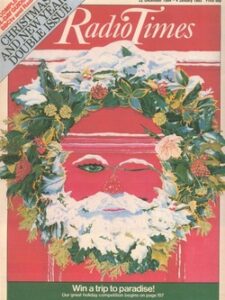
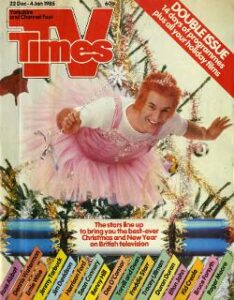
31st: Rick Allen, drummer of Def Leppard, loses his left arm in a car accident on the A57 road at Snake Pass.

Step back into the 80s with the iconic Ferrari Testarossa, the symbol of style and speed that defined a decade

Take a trip down memory lane with these 20 iconic board games and toys that defined our 1980s childhood in the UK.
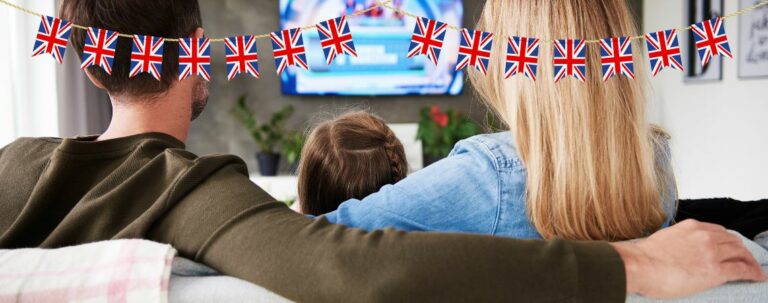
Immerse yourself in nostalgia with this collection of iconic 1980s UK TV adverts – a true blast from the past!

Tina Turner, the Queen of Rock ‘n’ Roll, whose life and career became a symbol of resilience and triumph, has left an enduring legacy
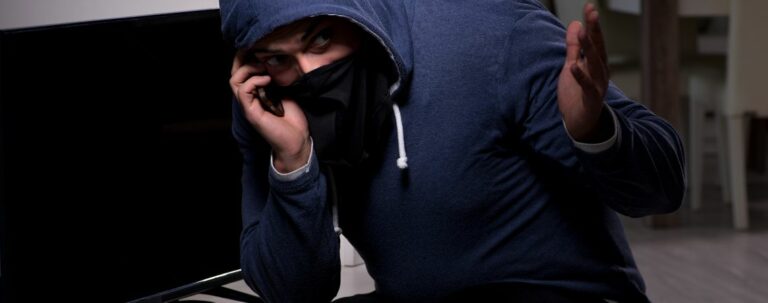
Uncover the Top 10 UK TV Villains of the 1980s: A journey through the most notorious and memorable antagonists of the decade
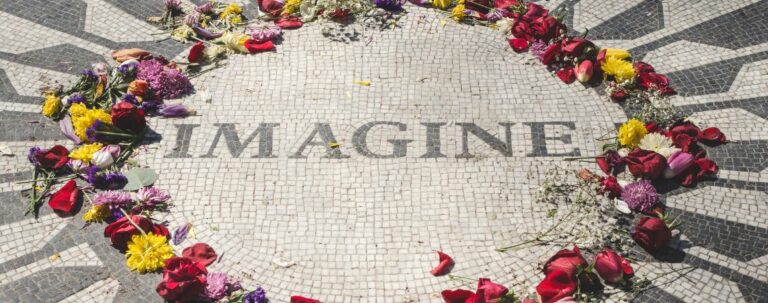
1980 saw the first CND rallies, the Alton Towers theme park opening and the murder of John Lennon in New York. The Moscow Olympics was the sport highlight.
No Events